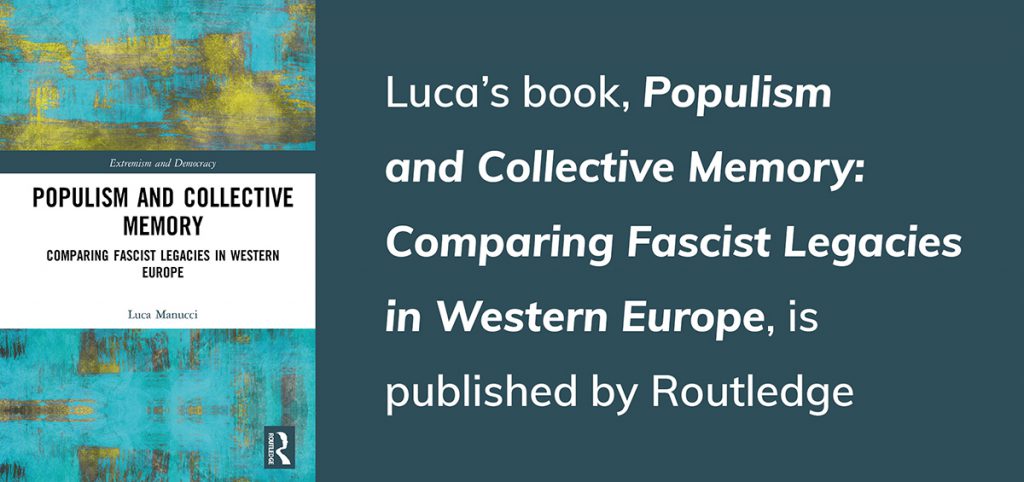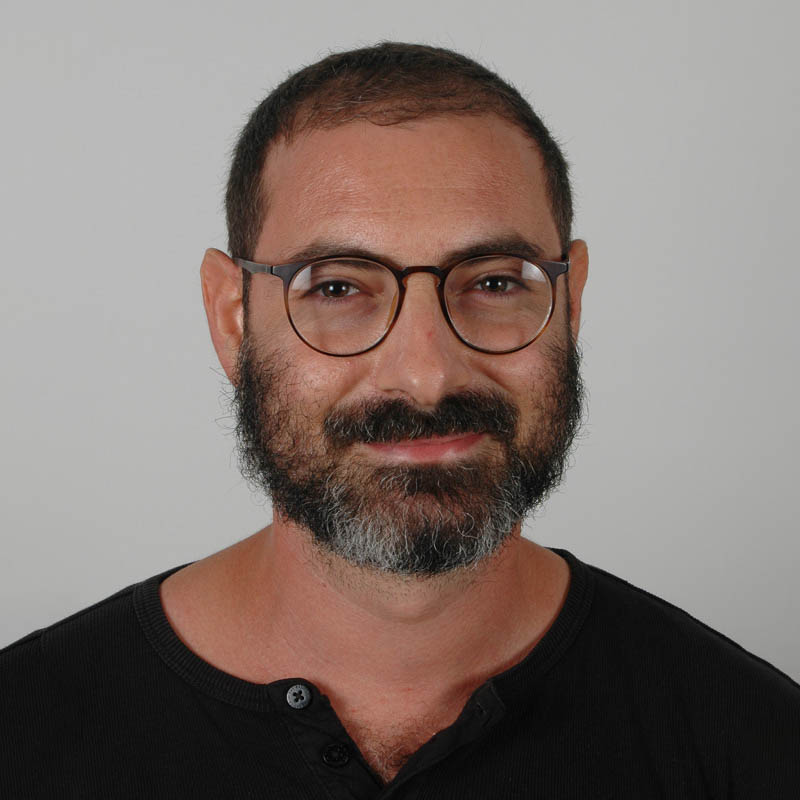🌊 Back to the future: illiberal democracy feeds on fascist ghosts
Luca Manucci, in a panoramic survey of the rise of illiberalism in our times, argues that this trend is feeding on authoritarian historical legacies and memories which are being rewritten before our eyes. It is an exercise all democrats should challenge, and resist
The fascist past is haunting contemporary democracies. Fascism, in its historic form of jackboots and salutes, survives mainly as a folk gathering of nostalgic people. Contemporary far-right leaders, parties and movements tend to coexist with democratic procedures and rarely resort to structural violence. However, their nationalist – often populist – discourses and actions place liberal democracy in danger.
The assault on Capitol Hill shows how disregard for democratic principles, and widespread conspiracy theories, can trigger a coup
The assault on Capitol Hill in the United States perfectly illustrates how a growing disregard for democratic principles combined with widespread conspiracy theories can trigger an attempted authoritarian coup. Fascism and authoritarian populism are not the same but learning about the former can protect liberal democracy from the latter. The current resurgence of authoritarian and nationalistic discourses forces us to engage in important work of historic and civic education to make sure that democratic values hold firm.
The Nazi past is back in Germany
Between 2016 and 2019, I wrote a book entitled Populism and Collective Memory: Comparing Fascist Legacies in Western Europe. While I was working on it, democratic values deteriorated across the world. Even countries that historically proved to have dealt with their past in a responsible and proper way, such as Germany, face serious challenges.

In 2019 the city of Dresden – birthplace in 2014 of anti-Islam and xenophobic movement Pegida – declared a 'Nazi emergency'. The entire region, Saxony, is now a stronghold of the far-right Alternative für Deutschland (AfD). Moreover, neo-Nazis started disrupting guided visits to former concentration camps. Germany, the country whose language has two different concepts for ‘dealing with the past’ – Vergangenheitsbewältigung (coming to terms with the past) and Aufarbeitung der Vergangenheit (working through the past) – is facing its own ghosts.
Post-communist legacies in Eastern Europe
In Eastern Europe, selective amnesia is a common tool for dealing with the past. Hungary is trying to rewrite its history by erasing its communist past and celebrating its authoritarian interwar 'golden age'. Miklós Horthy, much glorified by Prime Minister Viktor Orbán, was a right-wing autocrat. He was also an ally of Hitler, and allowed the mass deportation of Hungarian Jews to death camps. In 2014 the Hungarian government decided to erect a memorial to commemorate the victims of the German occupation. By so doing, they communicate the historically inaccurate message that Hungary had no culpability in the Holocaust.
Hungary is trying to rewrite its history by erasing its communist past and celebrating its authoritarian interwar 'golden age'
Until the Law and Justice / Prawo i Sprawiedliwość party took power in 2015, Poland was often considered a success story of post-communist transformation. But its parliament tried to criminalise the false attribution to Poland of crimes committed by Nazi Germany during the Holocaust, promoting a vision of Polish citizens as victims or heroes, never as perpetrators. The president eventually made a partial U-turn, but only after an outpouring of antisemitic rhetoric in the Polish political debate.
Fascist spectres in Southern Europe and Latin America
Southern Europe is also facing frequent 'irruptions' of memory. Spain finally removed Francisco Franco’s remains from the mausoleum in the Valley of the Fallen, following a long legal battle. Prime Minister Pedro Sánchez took the initiative, claiming: 'no democracy can allow for monuments to exalt a dictatorship.' Meanwhile, Vox – a Franco-nostalgic party – was the third most voted-for political force in Spain's November 2019 elections.
Italy is a prime example of how not to come to terms with the past. In May 2019, far-right Lega leader Matteo Salvini chose to give a speech from the same balcony in Forlì used by Benito Mussolini, facing a square from whose lampposts the fading regime hung four partisans in 1944. Meanwhile, politicians are discussing the opportunity to open a controversial museum about fascism in Predappio, birthplace of Mussolini.
And in Portugal there have been debates around the idea of opening a museum dedicated to former dictator António Salazar near his birthplace in Santa Comba Dão. Chega, the far-right party of André Ventura, is growing and recently gained its first seat in parliament.
Authoritarianism is haunting other parts of the world, too. In Latin America, echoes of former authoritarian regimes continue to reverberate.
In Chile, for example, protests in 2019 brought back vivid memories of the authoritarian past. Repression imposed by president Sebastián Piñera invoked 'the last phase of dictatorship under Augusto Pinochet.'

In Brazil, Jair Bolsonaro dared to commemorate the 1964 military coup, and to praise torturers. His culture secretary Roberto Alvim even quoted Nazi propaganda minister Joseph Goebbels.
Where is the red line?
Each case indicates a shift in public perceptions and in 'what can be said and done'. Each is an example of a line being crossed, and the normalisation of authoritarian discourse. Across Europe and the US, Covid-19 protesters are comparing government vaccination efforts with Nazi atrocities.
Across Europe and the US, Covid-19 protesters are comparing government vaccination efforts with Nazi atrocities
However, it is by joining all the dots together that the image becomes particularly gloomy. Remembrance of WWII barbarities and the Holocaust seem to become an empty ritual, while democracies face challenges for which they are ill equipped. The media, as well as academia and civil society, must remain free to ensure the national collective memory deals with uncomfortable truths. The people in power must not ‘cut and paste’ history to provide founding mythologies prêt-à-porter.
Historical awareness is disappearing. It is therefore more important than ever to make sure we pass on our knowledge and our memory to new generations, in the hope that they will aspire to new forms of politics.
Illiberal democracy looks too similar to a past we cannot afford to repeat. If we want to realise a democratic future, we must first deal with the legacies of our authoritarian past.
This article is the first in a Loop thread on the spread of illiberalism – the 'illiberal wave'. Look out for the 🌊 over coming weeks and months to read more in our series. If this is your field of research, and you feel motivated to respond to Luca's blog piece, pitch us your idea





Leave a Comment